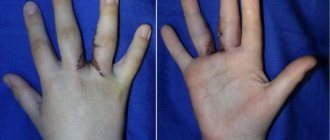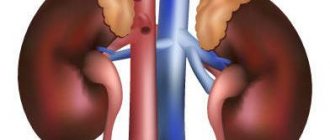The smell of acetone from the mouth of an adult is medically called acetone halitosis. Such specific breathing in adults never appears just like that, but indicates the presence of serious disorders. The more intense the acetone smell, the more aggressive the pathological process.
Ketone compounds are intermediate products of protein, lipid, and carbohydrate metabolism. They contain beta-hydroxybutyric acid, acetone, and acetoacetic acid. Their formation during oxidative transformations occurs in liver tissues and fat cells. As a result of further complete breakdown, ketones supply the body with additional energy.
Normally, all people have minute amounts of ketone bodies in the systemic circulation. If the level of ketones does not exceed safe limits, then an adult will not feel a deterioration in general health, and pathological acetone odors will not be heard from the mouth. In turn, manifestations of acetone halitosis begin with a significant increase in ketone levels in the circulatory system. An increase in their level is a kind of response to a stimulus.
The smell of acetone on your breath - does diet matter?
The content of the article
An acetone odor from the breath is felt in people on a low-sugar diet. A decrease in the concentration of carbohydrates leads to the fact that the main source of energy for the body becomes fats, which form ketone bodies. Fats will also be the main source of energy received by the body in case of fasting and a small supply of sugars.
Symptoms of elevated ketone levels due to the ketogenic diet:
- Smell of acetone from the mouth.
An increased concentration of ketones is indicated by a noticeable smell of sour apples from the mouth. - Decreased activity
. Reducing the intake of carbohydrates initially leads to a feeling of constant fatigue, dizziness and nausea. Physical strength also decreases. This state lasts for several days or weeks until the body begins to burn more fat and switches to a new source of energy. - Disruption of the gastrointestinal tract
. The ketogenic diet can also lead to diarrhea and constipation. - Insomnia.
Sleep disturbances are a kind of signal from the body about carbohydrate deficiency. - Decreased appetite.
Patients begin to lose weight and appetite. This is due to the fact that a decrease in the concentration of carbohydrates in the blood leads to a decrease in the concentration of insulin and an increase in glucagon, which stimulates the oxidation of fatty acids. Increased protein degradation when using this diet can lead to negative consequences due to protein deficiency.
A low-carbohydrate, low-fat diet that leads to ketosis has long been used to treat epilepsy, especially in children.
Causes of acetone odor
In addition to the acetone odor from the oral cavity in adults, an increased concentration of ketone interferes with the full functioning of the brain and all body systems. This condition poses a danger to humans and is fraught with ketoacidotic coma.
The smell of acetone from the mouth - the main reasons:
- diabetes type 1 and 2;
- neurological disorders, emotional shocks;
- endocrine disorders;
- renal and hepatic pathologies;
- anorexia, diets (especially those excluding carbohydrates from the diet), prolonged hunger;
- infectious diseases, inflammatory processes associated with very high body temperature;
- tumor processes.
It is worth mentioning the risk factors that can provoke acetone halitosis:
- heart disease (consequence of stroke, heart attack);
- alcohol addiction;
- critical temperature against the background of inflammatory and purulent processes, bacterial infection;
- the presence of enzymatic or nutritional abnormalities.
Below we will discuss the primary reasons that cause a strong odor of acetone from the mouth. It is important to understand that the smell may indicate serious disorders in the body. And it doesn’t matter whether it’s male or female.
Type 1 and 2 diabetes mellitus
In type 2 diabetes mellitus, the appearance of acetone halitosis is a natural symptom. At this stage of the disease, the breath smells of acetone so strongly that the person himself begins to suspect health problems. Most often, type 2 diabetes is diagnosed among an elderly group of overweight patients, but among middle-aged people this disease is also not uncommon.
Basic information about diabetes.
With excess weight, lipids accumulate in the body, and accordingly, fat mass exceeds the physiological norm. In turn, this process causes cells to lose sensitivity to insulin. For this reason, the absorption of glucose supplied with food becomes impossible, which is why the body perceives this state as hunger and begins to use other sources of energy.
Initially, it breaks down glycogen - its small supply can provide nutrition to the organs within a day. Then the breakdown of fat cells and proteins begins - it is precisely this stage that causes the acetone smell not only spreading from the mouth, but also from the skin and urine. All this can lead to a diabetic coma, so at the first signs (pallor, increased heartbeat, constriction of the pupils), you should immediately call an ambulance.
A similar process chain also occurs in type 1 diabetes. The only difference is that in type 1, the pancreas does not work properly and therefore produces little insulin. In type 2 diabetes, the gland independently produces insulin in the required quantities. But it is not accepted by the body, which is why glucose begins to accumulate excessively in the blood.
Anna Losyakova
Dentist-orthodontist
It is very important for diabetics to know what the appearance of halitosis indicates and how to promptly get rid of the smell of acetone in the mouth.
Pathologies of the kidneys or liver
The kidneys and liver are unique filters of the body, related to the organs of the excretory system. When an imbalance occurs in their work, the processes of releasing unnecessary substances are disrupted, which leads to an increased concentration of ketone bodies and breakdown products.
Acetone halitosis does not occur immediately, but as the disease progresses, when the development of pathology is accompanied by other specific symptoms that make it possible to diagnose the disease. For example, acetone odor from the mouth accompanies nephrosis and renal dystrophy.
Thyroid
With thyrotoxicosis, the thyroid gland produces an increased amount of hormones, which activates metabolic processes in which proteins and fats are intensively broken down. This endocrine disorder causes acetone odor from the mouth in adults.
Location of the thyroid gland.
People with this disease are irritable, quick-tempered, and complain of frequent mood swings, restless sleep, hair loss, and dry skin. Rapid weight loss is observed against the background of increased appetite, and the eyeballs become enlarged.
Diets and fasting
People who are keen on extreme types of weight loss often complain about the appearance of bad breath. These include voluntary fasting for health purposes, as well as the sensational protein diets, which involve an almost complete rejection of carbohydrates and eating only protein foods.
In fact, such an unreasonable approach to the issues of transformation and weight loss can lead to irreversible processes in the body. In the absence of carbohydrates, the body is forced to extract energy from where it will have to - fats, muscles, organ tissues. The breakdown of lipids provokes the formation of an excess amount of ketone bodies.
This state of affairs negatively affects the condition of the liver, kidneys, and gastrointestinal tract. The body is poisoned by ketone bodies, which is why you smell acetone from your mouth.
How to get rid of the smell in this case? Review your diet.
Infectious diseases
During an infectious process with elevated temperature, a person loses a lot of fluid, which leads to dehydration, as well as massive breakdown of proteins, which is why the smell of acetone is heard from the patient’s mouth.
Anna Losyakova
Dentist-orthodontist
To get rid of the smell of acetone from the mouth, you need to identify the cause and treat it. It won't work any other way.
Acetone breath and diabetes
Diabetes is a group of metabolic diseases that involve hyperglycemia—high blood sugar levels—associated with impaired insulin function or secretion. The patient's body, which cannot use carbohydrates as a source of energy as a result of impaired insulin secretion or action, begins to use fats for this purpose. As a result, ketone bodies are formed, which is the reason for the smell of acetone in the mouth. Some patients compare this smell to the smell of acid, gas or gasoline.
Chronic hyperglycemia causes damage to various organs, mainly the kidneys, eyes, blood vessels, heart and nerve fibers. There are several types of diabetes:
- type 1 diabetes;
- type 2 diabetes;
- gestational diabetes.
Type 1 diabetes is characterized by an absolute lack of insulin due to the destruction of beta cells in the pancreas. But the most common form of diabetes is type 2, which is characterized by impairment of both insulin secretion and function.
Diabetes
Typical symptoms of diabetes: increased thirst, polyuria, dehydration, drowsiness and weakness.
How does acetone smell?
The lungs not only serve to carry out breathing processes, they also perform an excretory function. This means that when exhaling, molecules of volatile substances contained in the blood are removed from the human body with the flow of air. That is why the smell of acetone from the mouth indicates that the composition of the blood has changed.
Acetone is the general name for a group of substances that give such a specific odor. In medical practice they are called ketone or acetone bodies. These are chemical compounds formed in liver cells as a result of metabolic processes - the processing of fats into energy for the functioning of the body.
They come in three types, depending on the phase of the biochemical reaction:
- First, β-hydroxybutyrate is formed in the liver.
- Under the influence of enzymes, acetoacetic acid is formed from it.
- Acetoacetic acid breaks down into carbon dioxide and acetone, and in this form the substances are excreted in the urine, then and through the lungs.
In a healthy person, the concentration of ketone bodies in the blood is insignificant, so there is no smell of acetone from the mouth. Typically, a person gets energy from glucose from food. But, if for some reason glucose does not enter the body , or does not fully participate in energy metabolism processes, the liver processes fats.
The chain of biochemical reactions described above is launched, and acetone enters the blood, the molecules of which are removed from the body during breathing. As a result of all these processes, the breath smells of acetone, since the exhaled air contains molecules of this substance.
Smell of acetone on the breath - ketoacidosis
Patients with diabetes can develop a life-threatening complication called ketoacidosis. This is a complex of acid-base disorders in which ketones appear in the urine and blood. This condition occurs as a result of insulin deficiency. Ketone bodies are most often produced in patients with type I diabetes, but may be present in test results in patients with other types of diabetes.
Sour breath is not the only symptom of this type of metabolic acidosis. Dehydration, glucose in the urine, electrolyte disturbances, disturbances of consciousness, feelings of weakness, drowsiness, vomiting, nausea, abdominal pain, chest pain, headache, dizziness, flushing, rapid heartbeat and rapid breathing are also observed. Without treatment, acidosis can cause coma.
In addition to diabetes, ketoacidosis and therefore acetone breath can cause:
- bacterial, fungal, viral infections, which increase the need for insulin;
- errors in insulin treatment;
- heart attack and stroke;
- pancreatitis.
Self-diagnosis
Of course, it is very risky to diagnose the disease yourself, as well as to self-medicate. However, there are people who are pathologically afraid of doctors and see them very late, when the disease has progressed. In order not to start and not give the disease a chance to develop, there is self-diagnosis.
So, as mentioned above, you need to pay attention to your blood sugar levels, and if everything is normal, then rule out diabetes. A common cause of acetone odor is type 2 diabetes. It develops against the background of rapid weight gain and as a consequence of obesity. And a symptom of this disease is considered to be bad breath. In this case, treatment is a special diet of quickly digestible carbohydrates, plant foods, vegetables and fruits. By adhering to it, you can cure the disease and remove the unpleasant smell of acetone.
One of the common causes of bad breath is thyroid and kidney disease. These two diseases cause a jump in the level of acetone in the body and, as a result, bad breath. In this case, you need to urgently consult a doctor, because the disease can worsen and cause kidney failure.
In third place are liver problems. As you know, the liver is a filter of the human body that affects the metabolic process. Disturbances in its functioning and the breakdown of tissue cells cause an increase in the level of acetone in the urine and blood. It is not recommended to joke with this organ and at the slightest manifestation of alarming signals you should consult a doctor for advice. It is important to remember that problems with vital organs should be solved under the supervision of a doctor and not self-medicate!
Pathogenic factors for the appearance of acetone include fasting and mono-diet. These two words are synonymous concepts and denote one phenomenon. With prolonged fasting, the brain begins to show alarm signals and send them to the body to increase glucose. You cannot exhaust your body with strict diets and subject it to such tests! Glycogen stores can maintain glucose at sufficient levels for only a couple of days.
After this, the body releases the energy of fats and proteins, at the level of their breakdown and the unpleasant smell of acetone is formed. There is a special medical term for this case “copper taste”, this is when the mouth “smells” like this substance. With a long and exhausting diet, glucose levels rise and the smell becomes clearer. In this case, there can be only one treatment: you need to switch to a balanced diet of easily digestible carbohydrates and low protein foods.
Acetone smell from child's mouth
Children's breath smells like acetone most often due to type I diabetes. The disease develops slowly and insidiously, so parents often do not know that their child is sick. In addition, young patients often experience weight loss, excessive thirst, weakness, and pollakiuria.
This type of odor can also occur when a child doesn't drink enough. Sometimes parents report an ammonia odor from their child's mouth during an infection such as pharyngitis.
A strange smell from the mouth should prompt parents to contact a pediatrician, who will prescribe the necessary examinations.
Peculiarities of odor in children
Diseases of internal organs occur in both adults and children. Of course, the appearance of diabetes in a child is too rare. But the disorder due to poisoning or intestinal infection is quite real or the consequences of hunger. The latter occurs because children most often do not want to eat themselves, and due to the carelessness of parents who do not sit down at the table in time and do not monitor the feeding of the child, starvation of the body often occurs. Or a young guy neglects to eat on time due to study or other reasons. This, in turn, causes a disruption in the digestibility of proteins, fats, and a deficiency of glucose in the blood, which leads to the appearance of an unpleasant odor of acetone from the mouth.
In addition to general disorders in the body of children, there is another reason, which is hormonal instability, because the body at an early age has high regenerative abilities.
In other words, any change in acidity immediately leads to disruptions in the digestive system, which in turn leads to an unpleasant odor. Acetone in a child’s blood is nothing more than a huge risk of causing a serious blow to the young body. Therefore, at the slightest appearance of the smell of acetone from the child’s mouth, it is necessary to promptly contact the specialists of a medical institution.
The smell of acetone from the mouth - diagnosis and treatment
Bad breath can be the result of negligence in oral hygiene. However, it can also indicate serious health problems. The smell of acetone on the breath is sometimes confused with the smell of alcohol. This may indicate uncontrolled diabetes and a serious complication of ketoacidosis.
To make an accurate diagnosis and prescribe effective treatment, the endocrinologist will check what medications the patient is taking and whether he is abusing alcohol. Women should be excluded from pregnancy.
Diagnosis of acidosis is based on the results of laboratory tests, in which it can be stated:
- decreased arterial blood levels;
- ketonuria - the presence of ketones in the urine;
- hyperglycemia;
- electrolyte disturbances;
- glucosuria - the presence of glucose in the urine.
Treatment of ketoacidosis is based on hydration of the patient, insulin therapy, correction of water-electrolyte and acid-base disorders.
ONLINE REGISTRATION at the DIANA clinic
You can sign up by calling the toll-free phone number 8-800-707-15-60 or filling out the contact form. In this case, we will contact you ourselves.
If you find an error, please select a piece of text and press Ctrl+Enter
Temporary elimination of acetone odor from the mouth
Elimination of the underlying disease automatically eliminates the smell of acetone from the mouth of an adult. The following methods will help make your breath temporarily fresh:
- rinse your mouth with mint, chamomile, eucalyptus decoction or infusion of sage, oak bark (take 1 tablespoon of raw material per 250 ml of boiling water). To maintain freshness in the mouth, it is advisable to carry out procedures every 3 hours throughout the day;
- Oil rinsing eliminates unpleasant odors. You need to keep the oil in your mouth for 10 minutes, after which you must spit it out and rinse the cavity with warm water. Manipulations are carried out in the morning and evening. This technique significantly dulls the smell of acetone, since the oil fights bacteria well, preventing their proliferation;
- For the solution, you need to mix water and hydrogen peroxide in equal proportions. Rinsing has an antibacterial and refreshing effect.
These methods can only veil the problem. For its final solution, it is necessary to treat the identified diseases or plan a nutritious diet.
Folk recipes
When a person smells of acetone, it is extremely important to see a doctor to find out the cause. Only after diagnosis is competent therapy prescribed, depending on the problem. But there are a number of folk recipes that will help fight the symptom itself. Such folk methods are often included in complex therapy.
It is important to remember that a folk recipe cannot help as an independent remedy.
The most effective options are:
- Oak bark. A decoction of oak bark will help with any sweating: legs, arms, armpits. Oak bark contains a large number of substances that correct the functioning of the sweat glands. It is also characterized by bactericidal properties. Pour 5 large spoons of crushed bark into an enamel container, pour in a liter of liquid and bring to a boil. Reduce the heat and simmer until half the volume has boiled away. Afterwards, leave the composition to infuse for half an hour. Filter the healing liquid using gauze and pour into a glass container. Gauze napkins are moistened in the product and medicinal applications are made. Change wipes when they dry out. Improvements are noticeable after three days.
- Vegetable oils. If the oiliness of the epidermis allows, that is, it is dry enough, then it is recommended to wipe it with eucalyptus, sage, and pine oils. It is also possible to add a couple of drops to baths.
- Salt and soda. Add two tablespoons of salt to a glass of warm water and stir thoroughly. Moisten gauze in the resulting solution and apply to problem areas. The procedure time is at least 15 minutes. If you take baking soda, dissolve a teaspoon in a glass of boiling water. Once the solution has cooled, add a couple of drops of tea tree oil. Wipe the skin with the resulting composition.
- Horsetail decoction. For severe sweating with an unpleasant odor, horsetail is effective. To prepare a healing decoction, pour three large spoons of horsetail into an enamel container, add half a liter of water and boil for 7 minutes. After this, filter the product, cool and apply it before bed. As the napkins dry out, replace them with new ones. The duration of therapy is a month. If necessary, repeat the course.
- Tincture of walnut leaves. To obtain the product, take three large spoons of walnut leaves, place in a glass container, pour a glass of vodka and leave to infuse in the refrigerator for 10 days. Stir the mixture from time to time. Treat the affected areas with the resulting healing infusion at least 5 times a day.
Sweating is a completely natural process, since the body thus tries to lower body temperature and remove harmful substances from the body. But it’s another matter when sweat acquires an unpleasant odor and has a different consistency. It is especially dangerous if the sweat smells of acetone.
This suggests that the functioning of internal organs is impaired and life-threatening pathologies can progress. In this case, it is very important to consult a specialist who will diagnose and prescribe competent treatment for the disease that caused sweating with the smell of acetone.












